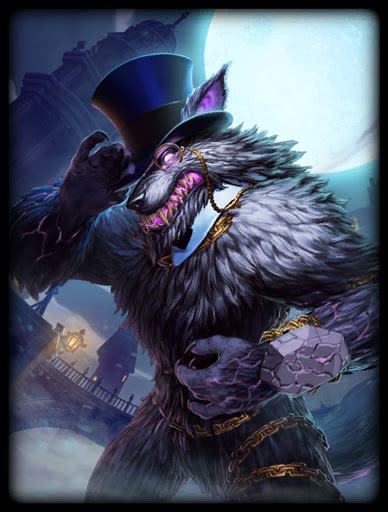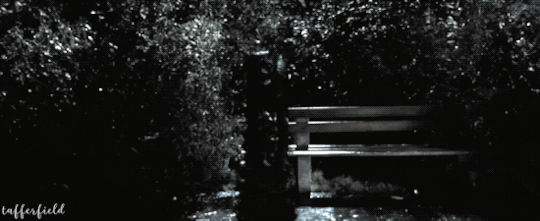Werewolves Are Not British

There’s a very common theme today among pop culture werewolves, both serious and comical (more often comical, because honestly, most werewolves have the misfortune of being walking jokes these days – more on that another time). Maybe you’ve noticed.
They’re very, very often associated with Great Britain. England. Tophats, monocles, posh Hollywood-style overwrought British accents (”Good chap, I say, awoo” and whatnot), the Victorian era, London…
And I’m just taking a moment this week to remind everyone that werewolves are not British, and I’ll explain all the reasons why.
Firstly, this comes completely from Hollywood, as you probably already figured. For some unknown reason, Hollywood latched onto the idea of putting werewolves smack in the middle of Great Britain, and often especially London. The Wolf Man (1941) takes place in Wales (though the werewolves therein were Romani), and then we have the movies Werewolf of London, An American Werewolf in London, and plenty of others. And chances are you’ve heard the song Werewolves of London by Warren Zevon.
This idea really caught on, and now we have video games out the wazoo with comically British werewolves that are either from or talk about London or some rough equivalent.
There’s the Lord Slashington III skin for Fenrir, from the game Smite. You also find the Capwolf (Captain America as a werewolf – which is canon in Marvel and is one of my favorite things ever, and I’m so surprised he’s in the game, but more on Capwolf later too) skin in LEGO Marvel Super Heroes 2 in the London level.
And of course there’s the entire race of Worgen in World of Warcraft, because the devs decided while making Cataclysm that Gilneas is basically Victorian England in terms of culture and design, because what better race to make ludicrous British jokes with than werewolves? (when in actuality werewolves should really be among the last choices to do that with)
And then we get more things like this:

So why does this bother you so much, Mav? Don’t you like seeing werewolves get turned into a laughing stock, waltzing around in tophats and “tally-ho”ing to the point that no one is remotely capable of taking them seriously? (especially since you have about 11 high level worgen characters in WoW anyway and paid out the butt to get a bunch of old chars changed to worgen when Cata released?)
Personal pet peeves and preferences aside, I actually do have a good reason for getting so bugged. And it’s all based on history and folklore.
In approximately 1680 AD, England completely wiped out their native wolf population. And wolves were wiped out in Ireland and elsewhere in the British Isles by 1786. Even before that, wolves were quickly getting scarcer in England over time, mentioned much more sparsely in accounts and stories. The continent was simply too small for humans and wolves to coexist there, especially at a point in history when everyone was – even more so than they are today – calling wolves evil, murderous villains while they lost livestock to them. Yes, there were certainly werewolf legends in England before this time period. But that was also well before the era of anything English or British associated with pop culture werewolves today (including the accent!).
Another thing? The British accent that we have today and associate with these werewolves in tropes wasn’t in existence whatsoever at any point when wolves were still alive in any part of Great Britain. If anything, they sounded more American. Look it up – you can find lots of sources.
Quick side-note: there were quite a few wolf and some werewolf legends in Ireland. Those, however, are ultimately irrelevant to the weird way pop culture latched onto making silly English stereotype werewolves – but I’ll be covering those later!
Werewolf legends in England were relatively few and far-between, at least compared to the mainland – especially France, Germany, Scandinavia, and Eastern Euorpe, where werewolves and their kin ran wild.
In England and elsewhere in the British Isles, however, we get much more of something else… the black dog.

You’ve seen them around – the Grim/Sirius Black from Harry Potter probably being the most well-known. But there are plenty of others – Hound of the Baskervilles, for instance.
As wolves became scarcer in the British Isles, legends of black dogs became more common, and they often played roles the same or similar to werewolves on the continent. Some are shapeshifters, but almost all of them are associated with death. Black dogs appeared in other folklore as well, perhaps traceable all the way back to Cerberus, the three-headed guardian of the Underworld in Greek mythology.
Look up black dogs in England alone and you’ll run into plenty of examples, including the barghest, supposedly a sign of impending doom… much like the Grim was taken to mean in Harry Potter.
There were black dog legends on the continent as well, true, but they weren’t quite as prominent. Even there, though, black dogs were associated with death and – often – the Devil.
Indeed, black dog legends may have even had a hand in the modern conception of evil, malevolent werewolves.
Whatever the case, though… Sorry, everyone, but werewolves are definitely not British, they’re not from London, and they’re specifically not Victorian era British. It’d be great if we could stop portraying them that way (especially when it’s only done for giggles…).